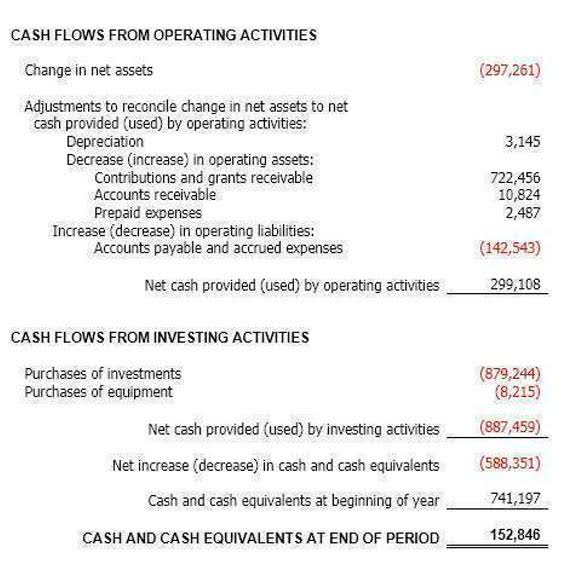
Our clients include E&P Operators, Family Offices, Private Equity Frims and Midstream companies. A central principle of SPE accounting involves the recognition and measurement of exploration and evaluation expenditures. These costs precede the development phase of oil and gas projects, and appropriate accounting treatment ensures expenditures are capitalized only when specific criteria are met, as stipulated by standards like IFRS 6. This prevents the inflation of asset values by ensuring costs are directly attributable to finding specific reserves.
Choosing the right accounting software to drive efficiency in oil and gas finance
IFS BOLO’s accounting module offers full visibility into revenue accounting, allocation and valuation, accounts payable/receivable, and joint interest billing, addressing these complex needs. Oil and gas accounting presents unique challenges that distinguish it from traditional financial practices. This industry demands specialized knowledge and robust systems to handle its complex financial landscape.
Financial Reporting Standards in Oil and Gas

Many companies now use automated accounting systems to track expenses and generate invoices. These systems integrate with operational data, recording costs in real time and reducing manual errors. This improves transparency, allowing non-operating partners to verify charges efficiently. Members of the Valor team hold highly regarded industry certifications including Certified Public Accountants (CPA) and Certified Professional Landman (CPL). We have operated oil and gas wells on behalf of ourselves and third-parties for generations and know what it takes to maintain proper oil and gas well files.
- This approach aligns costs with revenue generation, providing a more accurate representation of asset value.
- Accountants analyze operating expenses, capital expenditures, and production costs to identify opportunities for cost optimization and improved efficiency.
- On the other hand, automation improves accuracy, speeds up reporting, and supports better financial decision-making.
- This complexity arises from diverse sales agreements, including spot market transactions, long-term supply contracts, and production-sharing agreements.
- The Securities and Exchange Commission (SEC) mandates annual disclosure of proved reserves.
- This method is typically used when the investor has significant influence but not control over the joint venture.
Oil and Gas Accounting: Key Principles and Practices

Overcoming these Oil and Gas Accounting challenges requires specialized knowledge, robust accounting software, and adherence to industry standards. Companies that address these issues effectively can improve financial accuracy, enhance reporting, and strengthen overall business performance. Joint ventures dominate the oil and gas sector, creating significant accounting obstacles. These partnerships require precise tracking of costs, revenues, and production data across multiple parties.
Whether you’re suing or being sued, we can provide witness testimony, damage estimations, and valuation reports that support your case with industry expertise. Seasoned professionals equipped to unlock your business’s hidden potential through strategic optimization. We have extensive experience serving companies of all sizes, including new start-up players.


Achieve your goals by uncovering risks and issues early so you can strengthen your transaction strategy. We https://dworekemilii.pl/2020/08/18/1-800accountant-reviews-read-customer-service/ can also help you create business value, raise equity and debt capital, or evaluate strategic alternatives. Our professionals share your entrepreneurial spirit and want to help you strategically plan for the future. Baker Tilly’s dedicated AICPA SOC specialists perform hundreds of SOC engagements each year and help clients with their SOC reporting needs across a wide variety of industries. The credential equips you with the knowledge needed to excel in job performance and provides a heightened level of accuracy and ethics.
- This involves estimating the future costs of dismantling and restoration, which are then discounted to their present value.
- With new practical expedients, organizations should re-evaluate their implementation plan.
- Accurate Production Accounting is vital for maintaining financial stability, meeting compliance standards, and supporting strategic decisions in the oil and gas sector.
- We can also help you create business value, raise equity and debt capital, or evaluate strategic alternatives.
- We provide you with dependable, cost-effective solutions to reduce your overhead and effort spent managing day-to-day accounting tasks.
- While it’s not designed specifically for oil and gas, many companies in the industry use it because of its customizable features and ability to connect with other tools.
Accounting for Depletion, Depreciation, and Amortization (DD&A)
Our skilled and knowledgeable experts normal balance offer classes that are up-to-date, focused, and practical. We make it easy for you to learn more about the oil and gas field so you can expand your job horizons and learn about new employment opportunities. If you’re an accountant that already works with clients in the oil and gas field, COPAS courses keep your knowledge up-to-date while providing CPE credits to maintain your license. Oil and gas companies and their management teams are frequent targets of cyberattacks, with opportunities for cybercriminals to infiltrate your system and cause costly breaches increasing.
- Assigning costs requires a structured approach to ensure expenses are distributed fairly among stakeholders.
- These incentives can significantly impact a company’s financial statements and investment decisions.
- Regular, comprehensive impairment testing based on IAS 36 or the relevant GAAP guidelines is crucial.
- Learn how COPAS standardizes accounting practices in oil and gas, ensuring accurate cost allocation, auditing, and financial management in joint operations.
- Effective tax planning is essential to optimize cash flow and meet regulatory obligations.
- This efficiency allows your team to focus on your core business, not on processing and managing your payables, joint interest billing (JIB) statements or revenue distribution checks.
This efficiency allows your team to focus on your core business, not on processing and managing your oil and gas accounting payables, joint interest billing (JIB) statements or revenue distribution checks. Effective cost management in the oil and gas industry is essential for sustaining profitability amid fluctuating market conditions. Companies deploy strategies to control expenses, optimize operations, and enhance financial performance, focusing on both capital and operational expenditures. Impairment of oil and gas assets is a critical accounting consideration, particularly given the volatile nature of commodity prices and the substantial capital investments involved.
